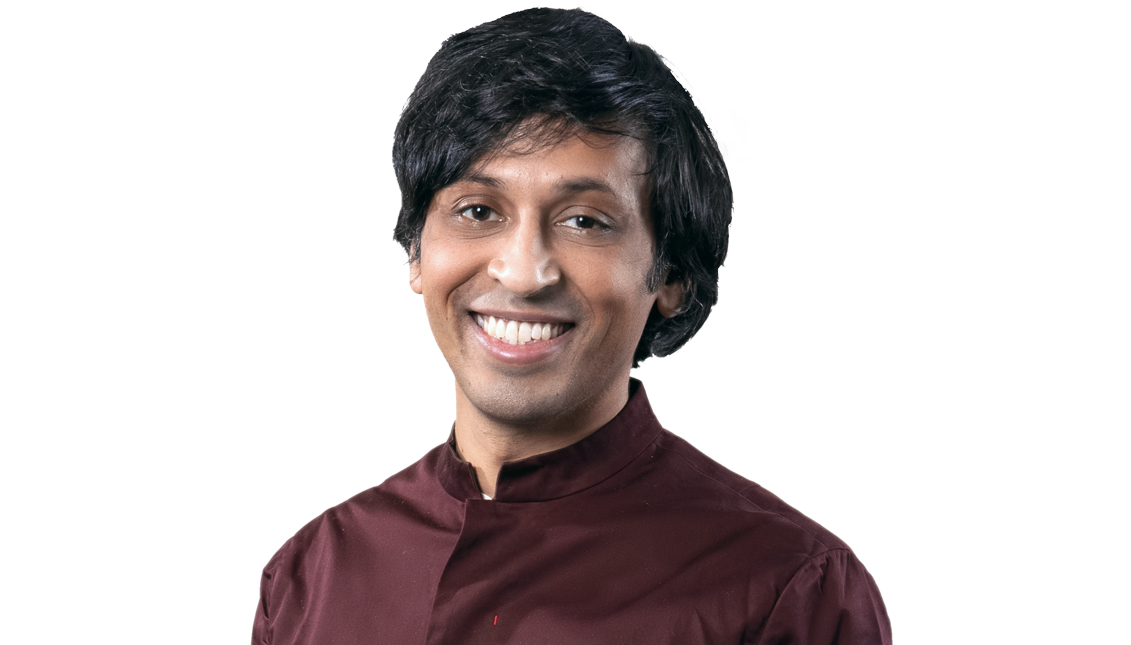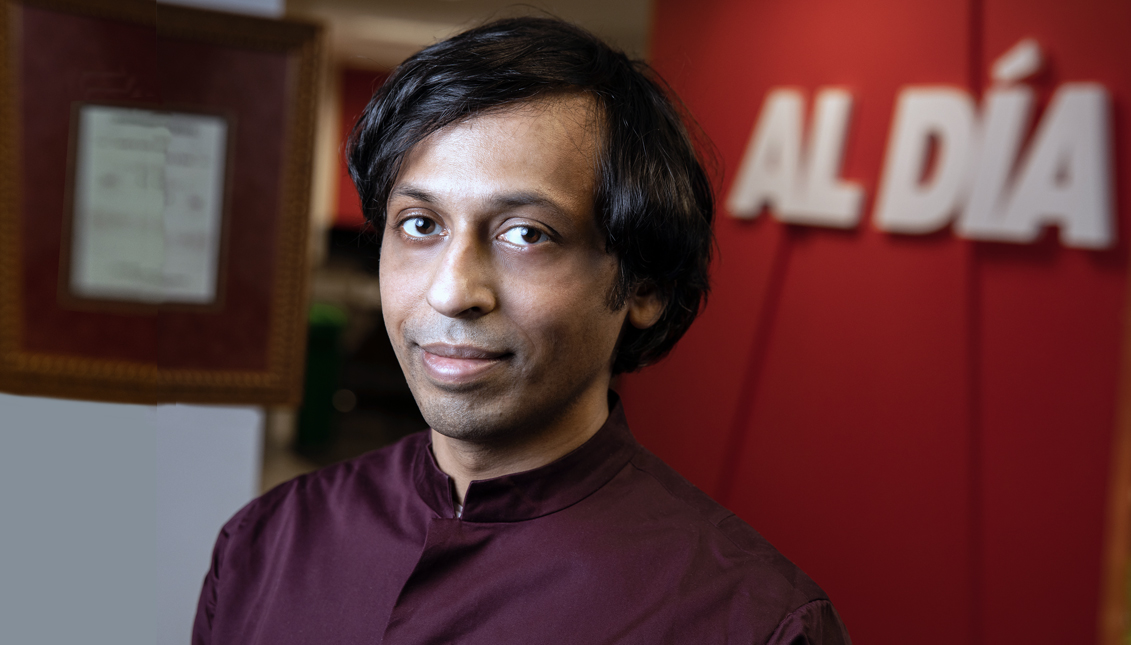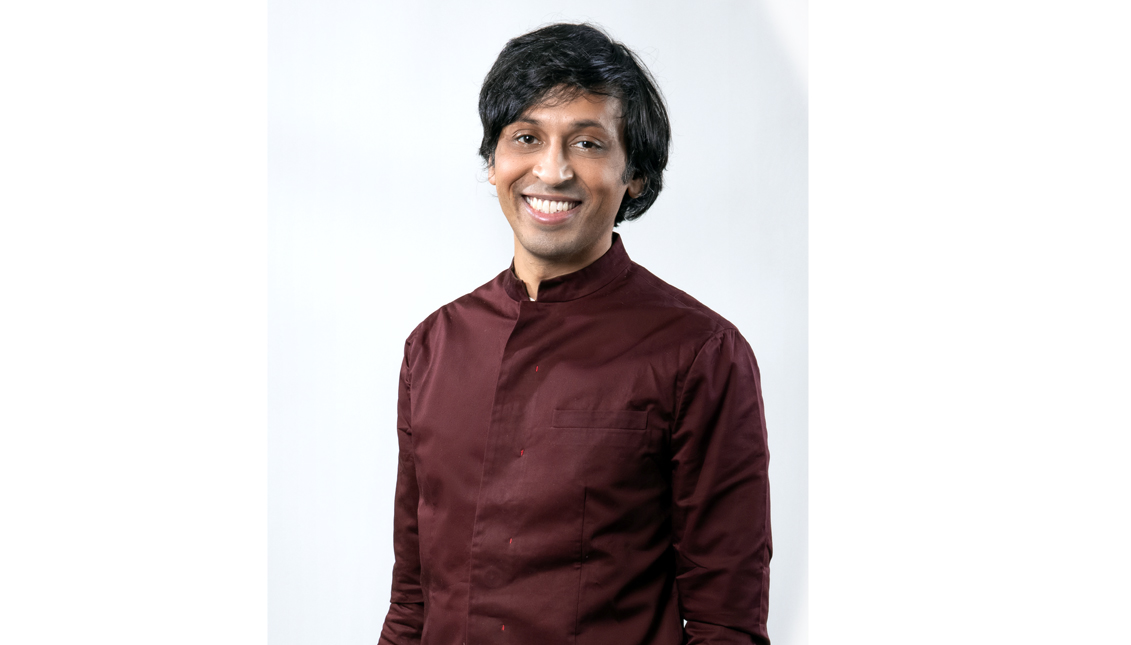
An Unexpected Journey
Nikil Saval’s connection to social movements is what got him elected, and they’re rooted in his immigrant past working in a pizza shop in Los Angeles.
When Nikil Saval won his primary election in 2020 against the establishment Philadelphia candidate Rep. Larry Farnese Jr he made history as the state’s first South Asian member of its legislature.
But for him, the post and the history he made means little compared to the social and political movements that propelled him to victory.
Saval, like many of his fellow newly-elected officials in Philadelphia, Harrisburg, and nationwide, sees himself as a reflection of or “vehicle” for the progressive movements born in Philadelphia as an answer to the election of Donald Trump.
“I’m still psychologically uncomfortable with it,” he told AL DÍA. “I still maintain that there is nothing special about me or any elected official, and we don’t have any unreproducible talents. You happen to be a vehicle for the movements of your time.”
These are grassroots campaigns led by predominantly working-class people of color that reject Trump’s America.
It’s an America very different from that which greeted Saval’s parents when they first came to the U.S. from India.

His parent’s first stop was New Mexico, but the pair eventually settled in Los Angeles, California.
They had science backgrounds but opened a pizza franchise, Numero Uno, in Santa Monica in 1982. This was where a young Nikil learned the immigrant experience both from his parents and the workers at the shop.
“It has a very fractious, complex racial history,” said Saval of Los Angeles, “but nonetheless, we felt welcomed.”
Saval went on to call Los Angeles an “immigrant-heavy” city — something he also calls his current home of South Philly — and Numero Uno was no exception. In addition to his parents, many of the other workers were immigrants, mostly from Latin America.
At that time in the 1980s, immigrants from El Salvador made up a majority of the new Latino immigrants to the city, and many were undocumented.
He can remember his parents securing status for their workers who did not have it.
“Documentation or not, we were immigrants,” Saval said, illustrating his parents’ attitude towards their workers.
That open approach to others no matter their background stuck with their son long after his days in the pizza shop.
His time there opened Saval’s world to the differences found in the immigrant experience, but it also showed him the commonality in the struggle of coming to a new country.
This connection created unique solidarity, and in his own words, it gave him an appreciation for the difficulties many immigrants faced, even though he wasn’t directly subject to them in his own life.
“Calling it a country of immigrants obscures the barriers that face working-class immigrants in this country just to find a foothold,” Saval said.
His parents took risks and learned to adapt to their surroundings, whether they were in New Mexico, Los Angeles, back in India, or in Boston and New Jersey, where they settled later in life.

Saval inherited the risk-taking.
His parents encouraged their son to explore his curiosities in school.
As a result, he excelled and, after attending public school up to eighth grade, Saval got a scholarship to prep school in Los Angeles through a program for minority students called A Better Chance.
Prep school exposed him to college opportunities and he landed at Columbia University in New York City with dreams of being a novelist.
“I think I had this fantasy of, if you wanted to be a novelist, move to New York,” Saval said.
“I think I had this fantasy of, if you wanted to be a novelist, move to New York,” Saval said.
He was a big fan of Charles Dickens, Vladimir Nabokov, and Virginia Woolf. It also helped that he wanted to study under then-Columbia professor and Postcolonial Studies founder, Edward Said.
The novels of his dreams were also very much like Dickens, full of memorable characters, scenes, and realism.
“I wanted to write big, social novels about cities,” he said.
He would eventually but as a journalist providing the heftiest doses of realism about the rapidly-gentrifying New York City he once idealized.

“I had this bubble,” Saval said of his college years. “But out of it, I was in this apartment I couldn’t afford.”
Rent was $1,000-a-month, and with his $28,000-a-year job in publishing, “it wasn’t sustainable.”
In his first piece in the publication n+1, which he would eventually come to co-edit, he wrote about Brooklyn’s losing battle against its new NBA team building an arena.
“If you want to build stuff that’s one thing, but why should you be getting a bunch of public money to do it?” he said.
In the process, he also learned how big projects, like a sports arena, divide communities along racial, geographic, class lines, and are “extremely difficult” to fight against as a result.
With his remaining time in New York City, Saval also found himself disillusioned with the publishing industry as a whole. He was underpaid, overworked, and in a predominantly white industry.
However, he and his co-workers found solidarity in their youth and tried to organize a union at one of the publishing houses. They failed, but Saval took what he learned back with him to the Bay Area for graduate school.
There, he volunteered for San Francisco’s branch of UNITE HERE, a labor union representing workers across the country in the hospitality industry.
It was “a life-changing experience” for Saval, who found solidarity similar to the one from his immigrant youth in the predominantly working-class, immigrant members of the union. They demanded respect from the wealthier San Francisco elite and flexed their combined muscle to get what they wanted.
Saval would take these lessons in organizing and coalition-building to Philadelphia, where he settled with his partner, Shannon, in 2011.
These lessons would be put to action during the 2016 election cycle.
Saval, by then a published author and regular architecture and urban development contributor at some of the country’s biggest publications, got heavily involved in the Bernie Sanders campaign.
Unlike his previous political efforts canvassing for Barack Obama across state lines in Nevada, Saval relished his opportunity with Sanders to talk with neighbors and community members he had come to admire.
RELATED CONTENT
Sanders the candidate also shared many of Saval’s ideals.
“That was rare for any candidate in my lifetime,” he said.
As he connected with the larger progressive Philadelphia community, Saval co-founded a movement of his own alongside other organizers, called Reclaim Philadelphia.
It came from the remains of the Sanders campaign and was a small organization of no more than 50 members that paid its dues in its early days knocking on doors for Hillary Clinton and Senate candidate Katie McGinty.
“We wanted to keep the gang together,” said Saval.
“We wanted to keep the gang together,” said Saval.
Little did they know, the gang would grow by leaps and bounds after the election of Donald Trump. Saval called Trump’s election win “devastating and scary,” but also “liberating” as hundreds and thousands of people flooded into Reclaim Philadelphia to reject his messaging and chart a progressive path for the city and country.
He said Trump’s election inspired many to want to run for political office, especially women and people of color.
“This unqualified, terrible figure could get elected. And so you think: ‘I’m actually more qualified than this person,’” he said.
Reclaim began backing progressive candidates for office in the city and state. It saw major successes with the 2017 victory of Larry Krasner for District Attorney, and later on, Philly City Council, as Helen Gym swept the field for re-election and candidates like Kendra Brooks and Isaiah Thomas won spots as at-large candidates.
“It showed that the city has the capacity and appetite for progressive politics,” he said.
In 2020, that progressive wave came knocking on Saval’s door, and soon, he was in the running for State Senate against establishment incumbent, Rep. Larry Farnese Jr.
“It was strange,” said Saval of being the face of a campaign.
But he also called his campaign “bolder” because of the social movements that backed it.
“It’s not just accountability, but the license or freedom to ask for more,” he said.
“It’s not just accountability, but the license or freedom to ask for more,” he said.
His was a platform demanding housing as a human right, a Green New Deal for Pennsylvania, ending mass incarceration, and healthcare for all, among other progressive talking points
It allowed him to appeal to a broader swath of diverse voters in the city.
A day after the June 2 primary, Saval was declared the winner by the Associated Press. He ran unopposed in the November General Election.
Despite the victory, Saval still said that it’s weird being called ‘Senator.’
Since taking office, he’s hit the ground running with his push for more equitable housing.
In February, the goal was extending eviction protections for more Pennsylvanians, but now, Saval will play a major role in doling out American Rescue Act funds for rental assistance as the Minority Leader on the Pennsylvania Senate’s Urban Affairs and Housing Committee.
“We support broadly that people should not be in rental debt for what they are going through,” he said, referencing the COVID-19 pandemic’s economic impact.“Many people are in mortgage debt and rental debt through no fault of their own.”
Saval has also maintained his connection to the movements that propelled him to office.
He stood with teachers in Philadelphia protesting the quick reopening of schools and unsafe work environments and with local unions protesting the poor treatment of injured workers, among others.
His advice for people wanting to run for office is to do the same.
“Join organizations that you want to fight with,” he said. “And if that organization doesn’t exist, you should get together with people and create it.










LEAVE A COMMENT: